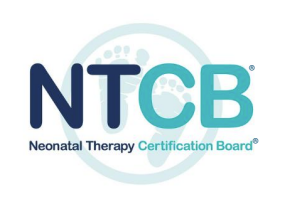
“We have such a passion for our little ones and their families and for ensuring that they receive the services they deserve. South Africans are passionate, resilient, adaptable and determined, we would love to share our passion for neonates with the rest of our colleagues and showcase South African efforts in empowering families and managing these often complex little ones.”
–Andrea Fourie, SLP, CNT and Bianca Pereira, OT, CNT
Andrea Fourie and Bianca Pereira from Johannesburg, South Africa became Certified Neonatal Therapists (CNTs) this year! Both have an unstoppable desire and determination to learn and advance neonatal therapy practice. Andrea and Bianca, who have a collective 19 years of experience in the NICU, have shared their experiences to promote an improved understanding of neonatal therapy practice in South Africa.
South African NICUs have many similarities to those in the US. In South Africa, NICU beds are designated as either intensive care or high care. Babies in need of ventilation, CPAP, or post-surgery care receive care in the intensive care units while those requiring less intensive support receive care in the high care unit. The non-profit hospital where Bianca works has 30 beds (10 ICU beds and 14 high care beds). Andrea works in multiple private hospitals, but her primary hospital has 40 beds (15 ICU beds and 25 high care beds). In their NICUs, the neonatal therapy team is made up of a physiotherapist, occupational therapist, and speech-language pathologist. Both Andrea and Bianca provide care for infants born prematurely, with neurological/cardiac conditions, as well as those infants undergoing surgical procedures. They use standardized assessments that include the GMA, NBAS, NBO, HINE, and the Bayley-III for older children. Both of their NICUs would be classified as level IV NICUs.
One of the most notable practice differences between the US and South Africa relates to resources. Service provision and resources vary significantly from hospital to hospital, based on the payment structure. In private hospitals, Andrea explains that therapy orders are referral based. Doctors have to authorize therapy for it to be covered by insurers, but even then, it is dependent on the insurer to determine whether the therapy services will be covered. Andrea sees approximately 20% of babies in the NICU, due to the insurance restrictions and the availability of funds. Bianca shares that, in her non-profit hospital, there are standing orders in place for all infants who are born prematurely and meet the criteria for therapy. Bianca sees approximately 60% of babies in the NICU that she staffs.
There is a lack of access to commercially designed positioning products in South Africa. Both Andrea and Bianca are responsible for fabrication of devices to support optimal developmental outcomes. Bianca often uses dialysis or IV bags as gel pillows and makes supplies that are needed, such as homemade scent cloths. Obtaining specialized feeding products can also be a challenge. Generally, any bottles (aside from one brand that is available) must be paid for and secured by the parents, or the therapists pay for and supply specialized feeding equipment when needed. Therapeutic equipment is one of the biggest challenges. These CNTs advocate for breastfeeding and find ways to mitigate some of the equipment challenges. Many challenges come from having limited resources, but these Andrea and Bianca state “South Africans are known for making a plan when we don’t have what we need, and this applies to the NICU as well.”
Becoming CNTs is part of how they demonstrate their expertise to others on the medical team and aids them in advocating for their practice and profession. They continue to make a huge difference in the care of infants and families.
Like many of us across the world, Andrea and Bianca have been affected by the global COVID-19 pandemic. The day after they took the neonatal therapy certification exam, South Africa went into a lock-down. They share that there is a large gap in post-graduate training related to NICU therapy. Andrea received a scholarship to attend the NANT conference in 2015, where she learned a lot about NICU practice in the US through colleagues and therapists she met at the conference. Such international training is not accessible for most therapists in the South Africa, due to financial considerations and distance, despite therapists in South Africa striving to keep their knowledge up-to-date. As CNTs, Andrea and Bianca hope to mentor and educate more therapists in South Africa to ensure best practice in the NICUs around the country and to grow a culture of value in neonatal therapy.
“We are grateful for the support from the NTNCB and the neonatal therapy community and hope that we can continue to grow the neonatal therapy community in our under-resourced country and serve our tiny babies and their families.”
– Andrea Fourie, SLP, CNT and Bianca Pereira, OT, CNT
